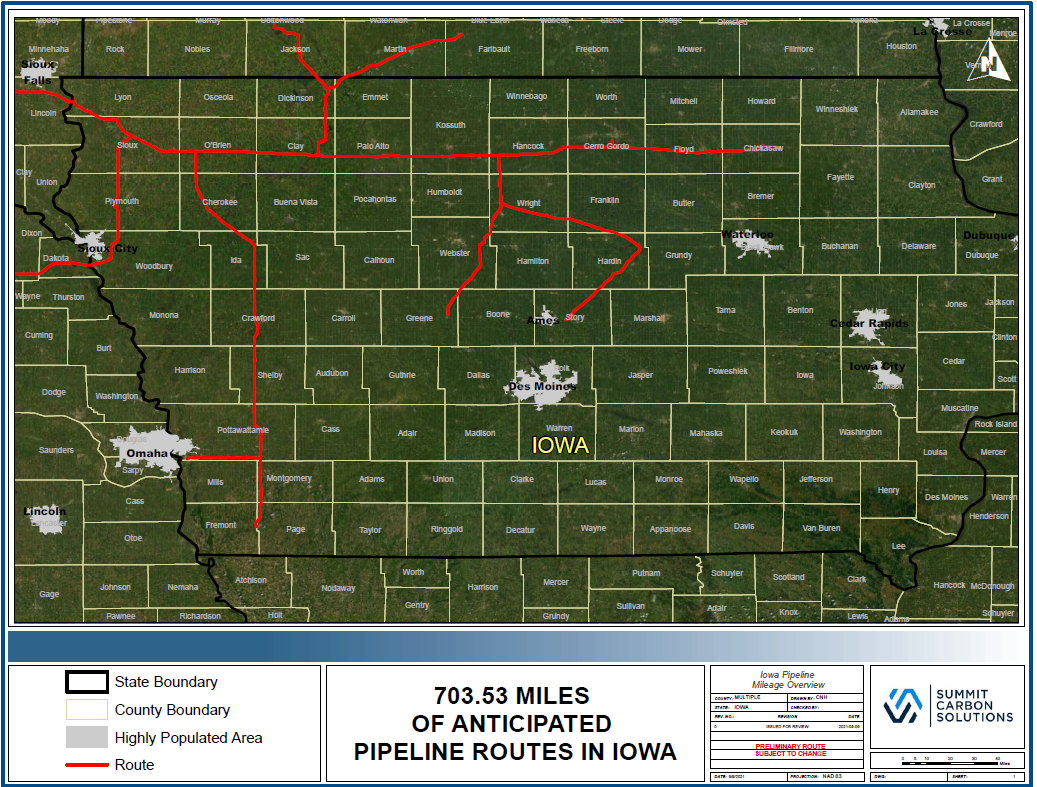CO2 Pipeline Challenges in the US Midwest
Inside this issue
Midwest CO2 Pipeline Update
Throughout 2021 numerous CCUS projects were announced, yet I do not see reliable data across the different types of carbon capture projects. Carbon capture sources spans Agriculture, Chemicals, and Manufacturing, the transporting of CO2 infrastructure and expertise resides with Energy Midstream companies, and carbon sequestration is typically in the domain of Oil & Gas.
Project announcements hint at the CO2 capture technology, general location, start dates, and partners but often details are missing to understand the full picture of the project. More often than not, projects are delayed, cancelled, or stuck in permitting stages.
Navigator CO2, Wolf Carbon, and Summit Carbon Lay Plans
For example, Navigator is revising its 1,200 mile pipeline plan for the Heartland Greenway CCS System. Navigator has key partnerships with Blackrock and Valero along with others to execute the company's plans. Even as the company proposes to decarbonize the agricultural supply chain, opponents and residents are challenging the location and use of land for the CO2 pipeline. This week, Navigator dropped Clinton and Cedar County Iowa from its proposed pipeline system.
At the same time, Wolf Carbon announced decarbonization partnership plans with ADM to jointly develop a pipeline to transport CO2 from ADM's Clinton and Cedar Rapids, Iowa facilities, to ADM's carbon sequestration facility in Decator, Illinois.

Source: Summit Carbon Solutions
Summit Carbon Solutions is planning a 2,000-mile CO2 pipeline running from North Dakota through Iowa. The 705 miles of pipeline in Iowa will likely face challenges from local, county, and state stakeholders as Summit unveils the plan details.
The proposed project will be capable of capturing and safely storing up to 12 million tons of CO2 emissions every year, which is the equivalent of removing 2.6 million cars from our roads on an annual basis. Doing so will drastically reduce the carbon footprint of ethanol production by up to 50% and will enhance the long-term environmental and economic sustainability of the ethanol and agriculture industries. As a $4.5 billion total investment, the Midwest Carbon Express project will generate between 14,000 to 17,000 jobs during construction and 350 to 460 full-time jobs once operational. Source: Summit Carbon
Many of the CCUS projects have ambitious goals to reduce the carbon footprint of agriculture in the Midwest; however, partner plans, permitting, and local approval will continue to cause project delays and changes.
Inside this Issue
🪨 Veolia Carbon Clean celebrates first carbon capture milestone
🎙 INTERVIEW: New CCS, hydrogen firm Lapis Energy gains private equity funding for low-carbon projects
⛴ Transocean semisub assigned to Norwegian carbon capture project
🚧 Oxford Energy Forum – Carbon Capture, Utilization and Storage (CCUS): barriers, enabling frameworks and prospects for climate change
Articles in this issue